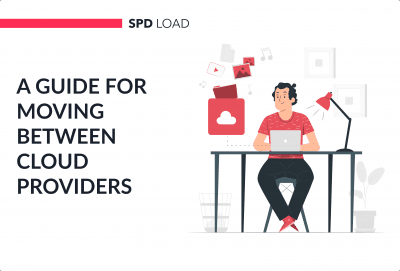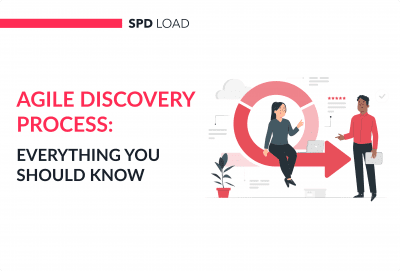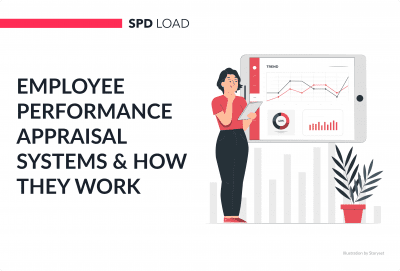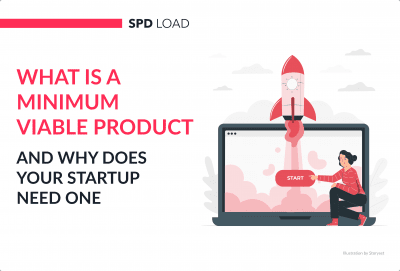Insurance Compliance: Regulations & Best Practices
- Updated: Aug 27, 2024
- 12 min
Regulatory compliance in insurance may seem like a complex web of legal jargon, but staying compliant is crucial for any insurance business.
At SpdLoad, we provide insurance app development services for startups and enterprises that want to digitize and streamline their operations. In this article, we’ll break down the key insurance compliance laws you need to know and how startups that offer insurance services can follow them properly. Whether you’re a founder, entrepreneur, or product manager in the insurance sector, this guide has you covered.
Here’s what we’ll discuss:
- What exactly is insurance compliance, and why does it matter?
- An overview of major insurance regulations in the US
- Practical tips for building a compliance program as an insurance startup
By the end, you’ll better grasp insurance compliance and be able to navigate core regulations like a pro.
If you are thinking of a car insurance app, discover the essential features in car insurance app development to create a user-friendly and secure application.
Bring your app idea to life with our expert software developers — contact us today to get started!
What Is Insurance Compliance?
Insurance compliance refers to the set of rules and laws that insurance companies must follow. These regulations make sure that both policyholders and regulators are protected.
Compliance helps companies manage risks, such as data breaches, fraud, climate-related risks, or unfair practices. It also ensures that customers get clear, honest information and fair treatment when buying insurance coverage.
Governments enforce these rules through national agencies like the Financial Conduct Authority (FCA) in the UK, the Monetary Authority of Singapore (MAS), or the National Association of Insurance Commissioners (NAIC) in the U.S. Some rules are also shaped by international associations to keep standards consistent across borders.
For startups, following compliance laws from the start is key to building trust, avoiding fines, and scaling globally.
To determine insurance compliance, government agencies consider the following:
- Data privacy: 72% of internet users have data privacy concerns. Insurance companies handle lots of data, which is used for automated insurance underwriting and risk modeling. Hence, regulatory laws are put in place to help secure data. Many insurance companies use compliance software to abide by these rules easily.
If you want to learn more about successful insurance businesses, feel free to check out our article about 15 examples of insurance companies
- Cyberattacks: Cybercrimes cost the world government a value of 1% of global GDP. Insurance compliance reduces the occurrence of cybercrimes by creating laws to help insurance companies adopt cybersecurity practices. Learn about effective bot attack prevention strategies to safeguard your site and data.
- Policyholder protection: Insurance supervisors are government officials who make sure insurance companies treat people fairly. They create rules to help customers understand what they’re buying and make sure insurers keep their promises to policyholders.

The insurance industry is evolving rapidly, and the processes are becoming much faster and smoother. See how insurance automation is changing the game.
Non-Compliance Risks for Companies
From financial penalties to reputational damage, the risks go beyond just paperwork. Here are some of the most common non-compliance risks:
Fines and Penalties
- Failing to follow insurance compliance can lead to heavy fines, legal action, or even license suspension. Each state may have different rules, so staying compliant everywhere you operate is essential.
Loss of License
- Regulators can revoke or suspend your license if your company doesn’t meet insurance regulatory compliance. This can halt your business operations entirely, especially if you’re violating specific state insurance laws.
Damaged Reputation
- Mishandling customer data or denying valid claims can lead to bad press, lost trust, and a drop in users or partners.
Legal Fees
- Non-compliance increases your business risks, which may result in higher insurance costs or the need to pay for legal defense and settlements.
Now, let’s break down the main insurance compliance laws, the countries they apply to, and what they actually mean.
Overview Of Insurtech Regulations
Regulations in insurance industry are getting tighter as the years go by. Experts believe that business risks are changing, and governments are becoming more innovative with compliance enforcement.
To stay on the right side of the law and avoid compliance risks, we have compiled the most recent insurance regulations applicable to the UK, USA, Western Europe, and Australia.
Insurtech Regulations in the United States
The United States has the largest insurance ecosystem, with insurance premiums worth over $1.7 trillion. The operations of the insurance sector are guided by federal regulations to guarantee that things work smoothly.
If you’re building an insurtech startup in the U.S., here are the main organizations you should know about when it comes to compliance in insurance industry:
NAIC (National Association of Insurance Commissioners):
- A group of state regulators that creates model rules and best practices. They help keep insurance regulation consistent across states.
FIO (Federal Insurance Office):
- Part of the U.S. Treasury, the FIO watches over the insurance industry at the federal level. It doesn’t regulate directly but makes sure people have fair access to insurance and advises on big-picture issues.
NYS Department of Financial Services:
- If you operate in New York, this is your main regulator. They set and enforce rules for insurance companies in the state.
FSOC (Financial Stability Oversight Council):
- This group looks at the financial system as a whole. They focus on big risks and may step in if a company grows large enough to impact the broader economy, but most startups won’t deal with FSOC directly.
Here are some insurance regulations for startups in the US:
Regulation | What it does | Why it matters for startups |
|---|---|---|
| Dodd-Frank Act | Increases transparency and accountability in the financial sector. Created the FIO and FSOC to monitor systemic risks. | Important if you’re building large-scale insurtech or touching broader financial ecosystems. |
| Affordable Care Act (ACA) | Requires insurers to spend 80–85% of premiums on care, bans pre-existing condition exclusions. The federal tax penalty for not having insurance is no longer active. | Critical for startups in the health insurance space or building health plan tech. |
| Nonadmitted and Reinsurance Reform Act (NRRA) | Simplifies the regulation of surplus lines insurance; only the insured’s home state can regulate and tax these policies. | Relevant if you’re working with surplus lines or selling across multiple states. |
| Insurance Data Security Model Law | Requires insurers to protect consumer data, respond to breaches, and notify authorities. Adopted by many states. | Essential for insurtechs handling personal or financial customer data. |
This list is not an exhaustive one. Also, you should consult with legal professionals about the niche-specific regulations in your preferred sector. For example, life insurance and health care insurance startups must comply with HIPAA.
Stay compliant and secure with these best HIPAA-compliant chat apps available today. 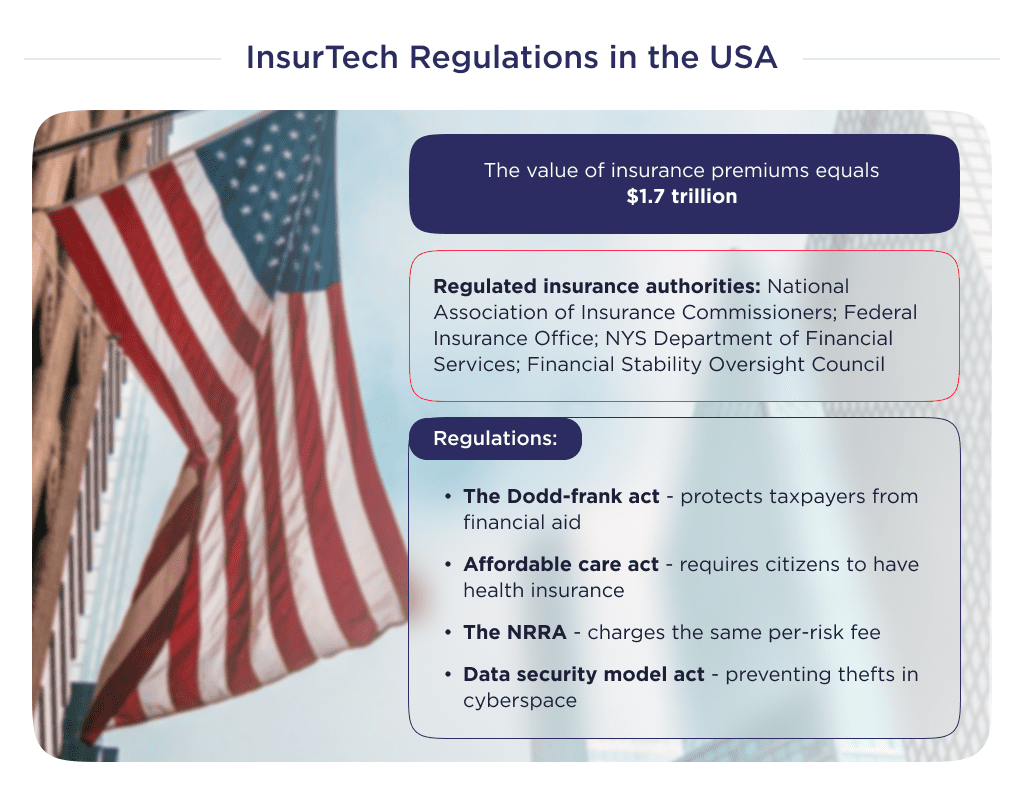
Insurtech Regulations in the UK
Like the US, the UK has numerous regulators in the insurance sector. This is partly because the value of premiums from the UK insurance sector is about $336.5 billion, making it the largest in Europe.
To ensure a stable market, the UK government established some agencies for oversight. Examples are
Prudential Regulation Authority (PRA):
- The PRA sets policies that insurtech startups are expected to meet. It assesses when insurance companies are safe and if they offer appropriate protection to policyholders.
Financial Conduct Authority (FCA):
- The objective of this regulator is to ensure that insurance companies function properly and that consumers’ interests are protected. It also regulates competition amongst insurers within its jurisdiction. The FCA has a regulatory sandbox that helps it detect flaws in insurance companies.
Here are some insurance regulations that UK regulatory bodies enforce:
Regulation | Meaning |
| General Data Protection Regulation | The GDPR ensures that insurance companies take care of consumers’ information. It restricts consumer-averse technological innovations. It also ensures that coverage plans are the same per risk. |
| Financial Services Act 2012 | This act aims to ensure insurers adopt consumer-friendly business models. It also prevents anti-competitive practices among UK-based insurance companies. This act also established the FCA and PRA. |
| Consumer Insurance Act | This consumer protection act mandates insurers to make claim payments at all times, even when consumers unknowingly disclose the wrong information. |
| Insurance Act 2015 | Modernised commercial insurance law. Requires businesses (including startups) to make a fair presentation of risk, but gives more flexibility and clearer rules on non-disclosure or misrepresentation. |
| Solvency II (as adapted post-Brexit) | Sets out how much capital insurance companies must hold to reduce the risk of insolvency. The UK has begun reforming parts of this post-Brexit, but core principles still apply. |
| UK GDPR | The post-Brexit version of GDPR still enforces strong data privacy standards. Startups must follow it when handling personal data (e.g., customer policies, claims data, health info). |
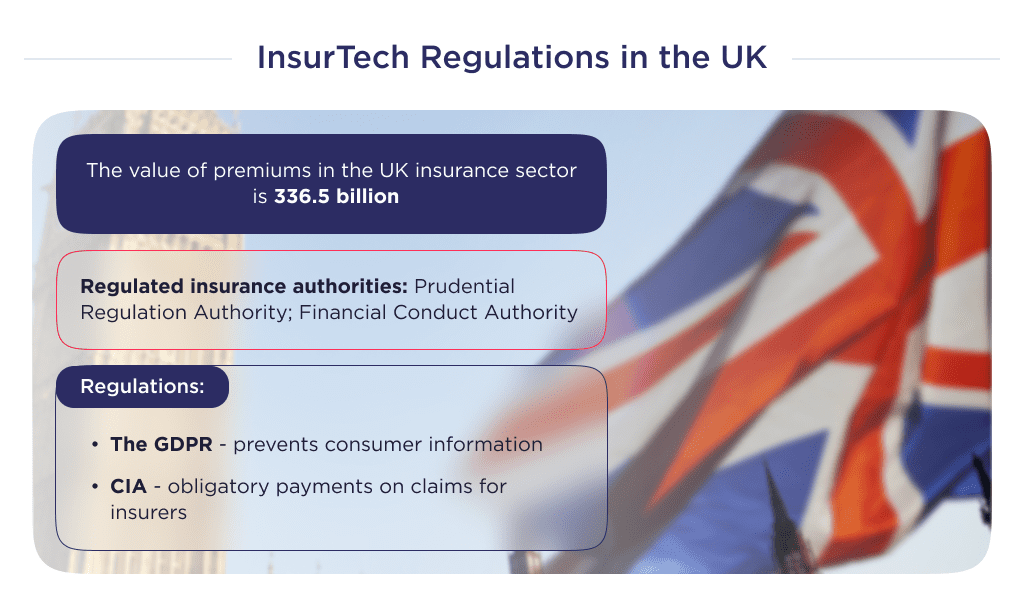
Insurtech Regulations in Western Europe
National regulators create most regulations guiding Western Europe’s insurance market. Insurtech is regulated by the European Insurance and Occupational Pensions Authority on a regional scale.
Amongst the few regulatory acts in Western Europe are:
Regulation | Meaning |
| The General Data Protection Regulation | This law aims to restrict how insurance companies handle data by ensuring they only use personal data for insurance purposes. It ensures that big data collected via Artificial Intelligence and machine learning remains safe. It allows the government to monitor data collection algorithms and data analytics in insurance. |
| The European Union Directives and Financial Action | This directive enforces insurance firms to uphold KYC policies. |
| Solvency II Directive | EU-wide regulation that ensures insurers have enough capital to reduce the risk of failure. It’s also about risk management and transparency. Still applies in most of Western Europe, though the UK is diverging from it post-Brexit. |
| EU Anti-Money Laundering Directives (AMLD) | This is one of the most important anti-money laundering regulations for the insurance sector. It’s a series of directives that require insurers, especially life insurance providers, to implement KYC, risk assessments, and reporting obligations to prevent money laundering and terrorism financing. |
| Insurance Distribution Directive (IDD) | Sets rules on how insurance products are sold in the EU. It promotes transparency, consumer protection, and product governance. Applies to both traditional insurers and digital insurtech platforms. |
| E-Privacy Directive (Cookie Law) | Complements GDPR by regulating electronic communications (like emails, cookies, and direct marketing). Insurers and insurtechs must get consent before tracking users online. |
For more detailed information on regulations in Western Europe, pay attention to regulations by national agencies in your country of operation. 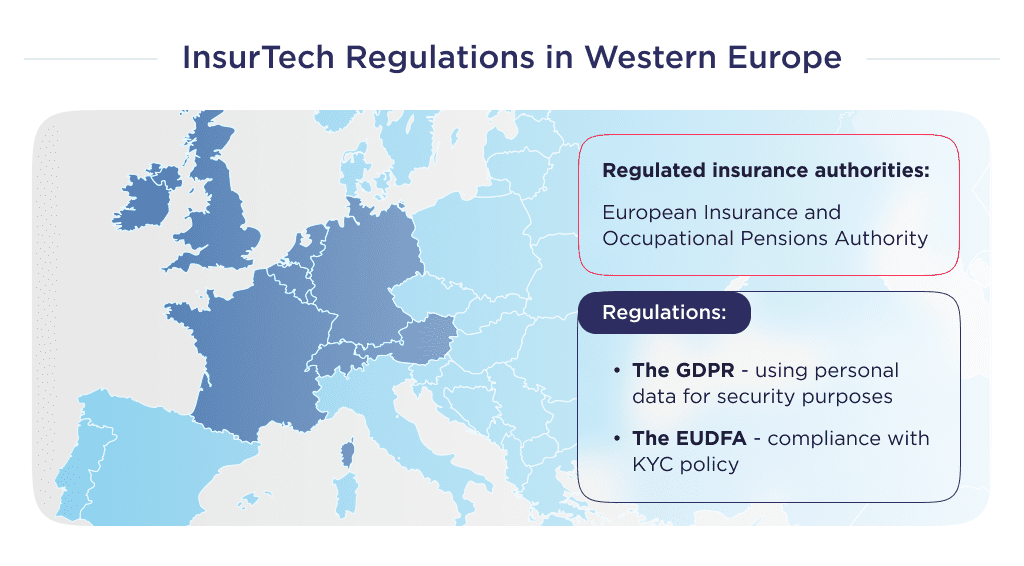
From concept to creation – launch your marketplace with SPDLoad!
Insurtech Regulations in Australia
The traditional insurance services in Australia are valued at $156bn AUD. This makes it one of the largest insurance markets in the world. To operate here, you’ll be regulated by internal control agencies, including APRA and ASIC.
Australian Prudential Regulation Authority (APRA)
- Oversees insurance companies to make sure they are financially strong and can pay claims when needed. They also review new insurance products and business partnerships to make sure they’re safe and fair for customers before they hit the market.
Australian Securities and Investments Commission (ASIC)
- Makes sure insurance companies follow the law and don’t cheat or mislead customers. They protect consumers, investors, and lenders by investigating fraud and enforcing rules against illegal behavior.
The laws regulated by these agencies are:
Regulation | What it does |
|---|---|
| Insurance Act 1973 | Sets the minimum financial requirements and prudential standards insurance companies must meet to operate safely in Australia. |
| Insurance Contracts Act 1984 | Protects consumers by ensuring fair treatment and balance between insurers and policyholders, including rules about disclosure and claims handling. |
| Corporations Act 2001 | The main law governing companies in Australia. It regulates company formation, business operations, fundraising, and takeovers. Applies to insurers too. |
| Australian Securities and Investments Commission Act 2001 | Establishes ASIC’s powers to regulate companies, financial markets, and protect consumers from misconduct, including in insurance. |
| Anti-Money Laundering and Counter-Terrorism Financing Act 2006 | Requires insurance companies to follow strict rules for customer identification (KYC) and report suspicious activities to prevent financial crime. |
Note: Australia has lots of state insurance regulators. As such, ensure you find out about the requisite laws in your state before launch. 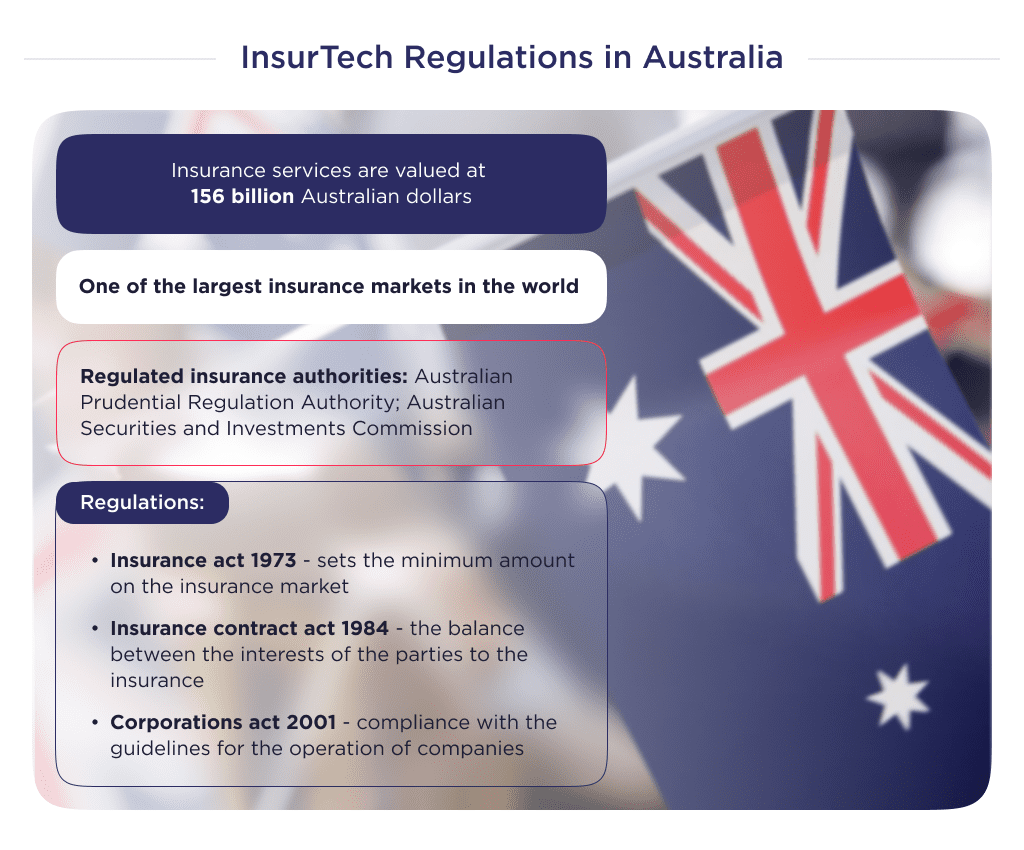
Insurtech Regulations in Singapore
According to Statista, the gross premium by Singaporean companies is estimated at 3.2 billion Singaporean dollars. For a nation with just 6.04 million people, this is a huge valuation.
To operate here as an insurance startup, you’ll be supervised by a task force, namely, the Monetary Authority of Singapore. Regulatory requirements in Singapore are:
Regulation | What it does |
|---|---|
| Monetary Authority of Singapore (MAS) Act | The MAS Act gives the Monetary Authority of Singapore the power to regulate, supervise, and enforce rules for all financial institutions, including insurers. It protects the public interest and allows MAS to take action against companies that break the rules. |
| Insurance Act (Singapore) | This law regulates insurance companies to ensure they treat policyholders fairly. It requires insurers to maintain proper financial health, safeguard customer data, and helps detect and prevent insurance fraud. The Act also sets standards for licensing and product approval. |
| Personal Data Protection Act (PDPA) | Governs how insurers and all businesses collect, use, and protect personal data of individuals in Singapore. Ensures customer data is handled responsibly and securely. |
| Anti-Money Laundering and Countering the Financing of Terrorism (AML/CFT) Regulations | Requires insurance companies to follow strict customer verification (KYC) and monitoring procedures to prevent money laundering and terrorist financing activities. |
Additional notes:
- MAS also operates a Regulatory Sandbox, allowing startups to test new insurance products or technologies under close supervision.
- The Insurance (Valuation and Capital) Regulations set solvency standards similar to Solvency II in Europe.
These insurance compliance requirements are overwhelming. As such, you’ll need guidance on how to comply with insurance laws. Below are ways companies providing insurance services can adhere to regulations. 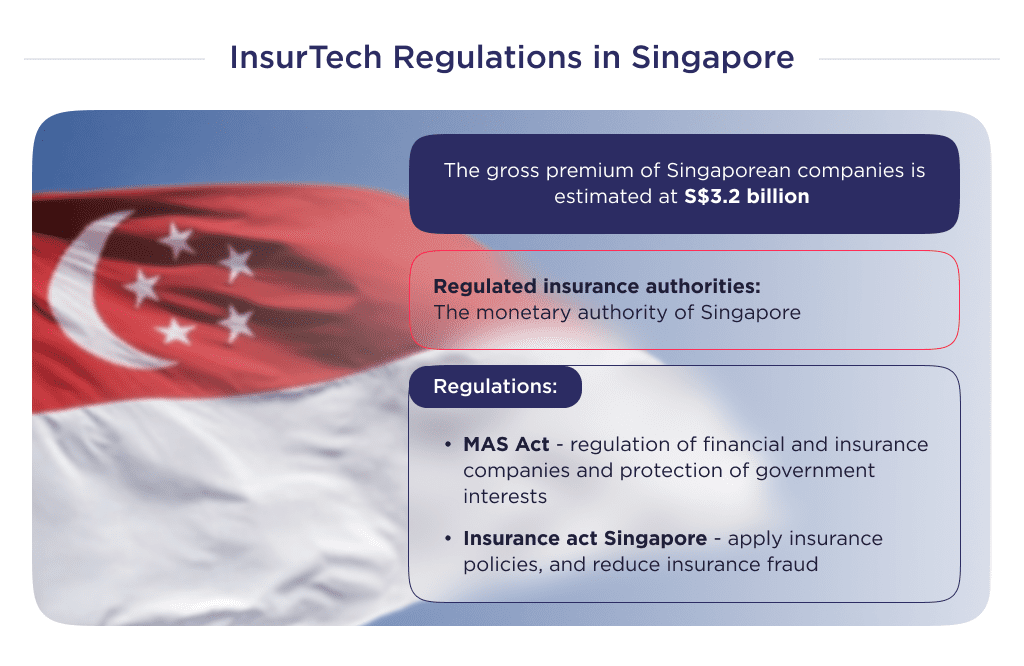
These insurance compliance requirements are overwhelming. As such, you’ll need guidance on how to comply with insurance laws. Below are ways to adhere to regulations.
How To Deal With InsurTech Regulation As A Startup
New startups in the insurance sector may find the policies confusing if they aim to operate across multiple nations. The best way to handle insurance compliance is to hire a regulatory team. Here is how to hire one.
How to Hire a Compliance Team
You can either hire a compliance team or outsource your operations. Here’s what both options mean.
Hire an Insurance Compliance Professional
You can hire a full-time compliance expert to work in-house. They’ll join your team and handle all things related to rules, regulations, and insurance costs.
This option works well if your startup deals with a lot of data or needs ongoing compliance for insurance companies.
Pros | Cons |
|
|
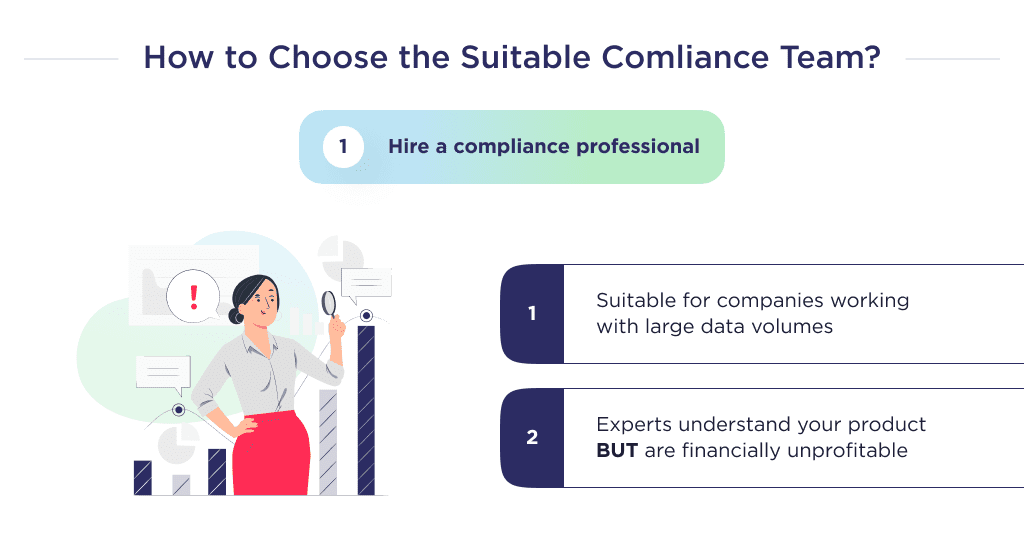
Wondering what’s next for insurance tech? Check out these insurance app trends.
An alternative is to outsource to a company with expertise in regulatory laws.
Outsource Your Compliance Responsibilities
Hiring a full-time compliance expert isn’t always easy or affordable for a startup. A simpler option is to outsource.
Outsourcing insurance compliance means you hire an external company to handle your compliance tasks. They take care of maintaining compliance, so your team can focus on building your product and improving the customer experience.
| Pros | Cons |
|
|
If you’re considering outsourcing, check out the benefits of IT outsourcing for insights. 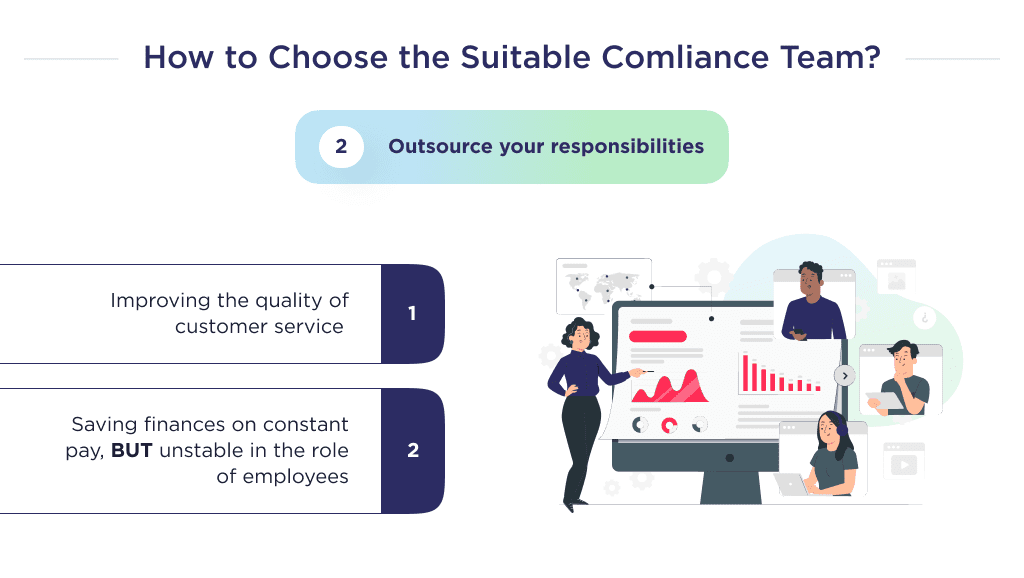
Crafting Custom Mobile Apps That Delight Users!
Building a fintech startup? Get practical advice on how to start a fintech startup and navigate the industry.
Want To Develop Your Own Insurtech Product?
We’ve walked you through the key insurance industry regulations and best practices to help you stay compliant. Now it’s time to bring your idea to life.
If you’re ready to develop innovative, regulation-ready insurance software that meets all insurance compliance requirements, we’re here to help. Our team builds insurtech solutions that go beyond the basics. We cover everything from compliance with insurance policies to seamless user experience and smart insurance coverage features.
Here’s how we support startups like yours:
- Guide you through the regulatory standards that apply to your business
- Design secure, compliant architecture from day one
- Integrate complex insurance data systems with ease
- Empower insurtech startups to create legally compliant, game-changing products
As a Clutch Leader in Ukraine, we’re excited to bring our clients industry-leading expertise and dedication.
Reach out to start your most innovative and compliant build yet!
Learn more about our insurance web design services.




